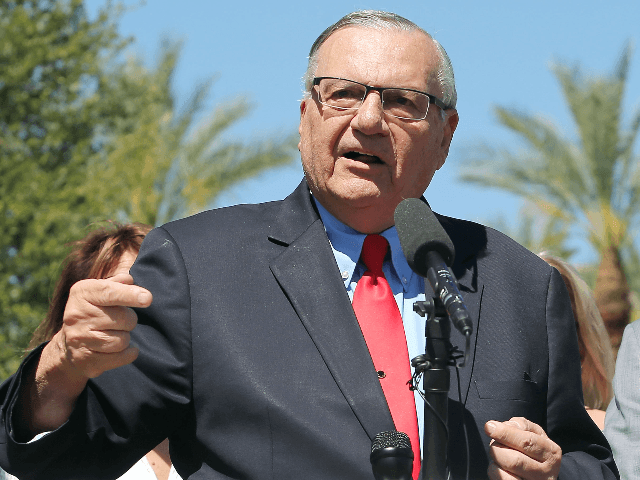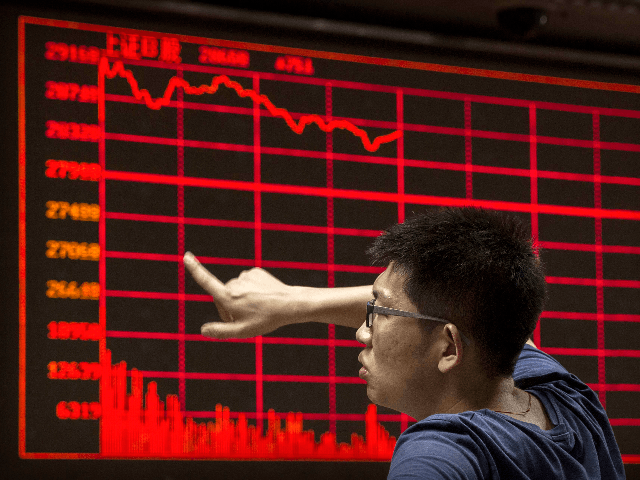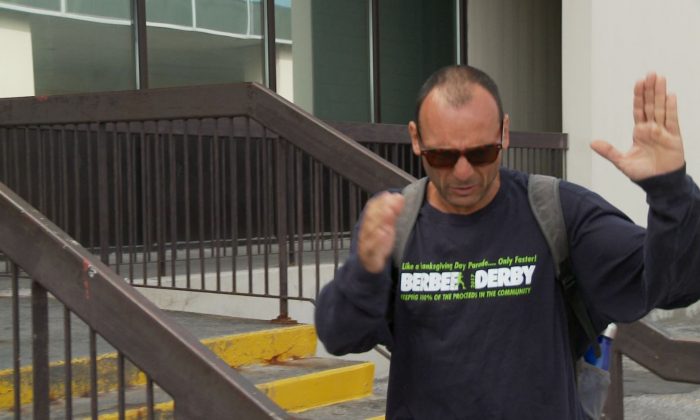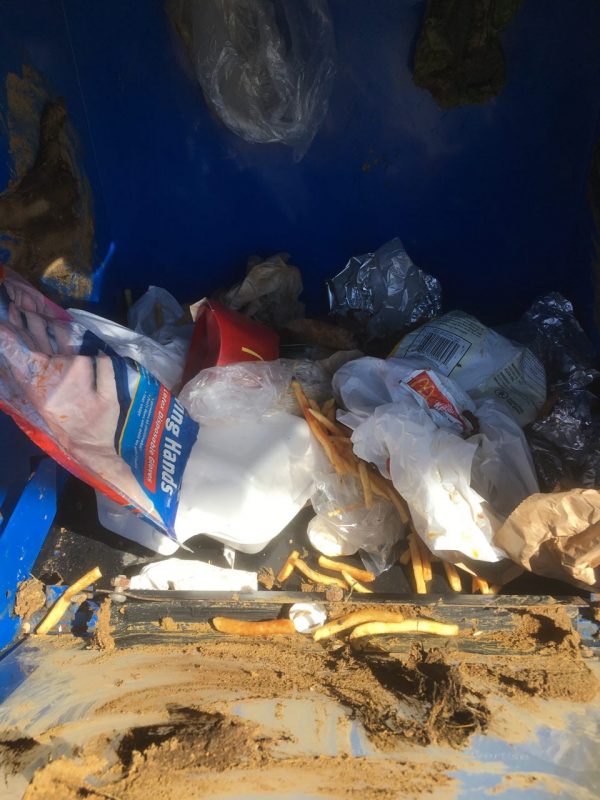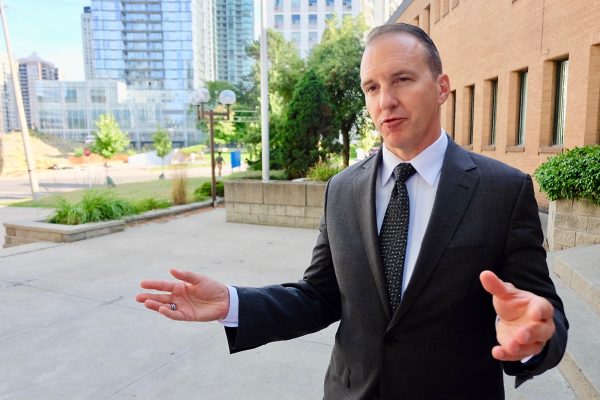CHINA’S WORLD DOMINATION GAMBIT
More threatening, cunning and dangerous than you may think.
August 27, 2019

President Trump has confirmed he is considering an attempt to buy Greenland for strategic reasons. No, this is not an out-of-season April fool’s joke.
Trump, it seems, hasn't forgotten his old job. Remember, before he became the president of the free world, the septuagenarian was the world's most-famous real estate developer. If the acquisition of the self-governed Danish territory comes to fruition, this would be a savvy piece of expansionism. Why? People can ridicule the president all they want, but Greenland is rich in natural resources, including iron ore, lead, zinc, diamonds, gold, rare-earth elements, uranium and oil, according to the Brookings Institution, a nonprofit public-policy organization in Washington, D.C.
Anyway, why not? After all, the US acquired Louisiana from France, Florida from Spain, Alaska from Russia and much of its southwest from Mexico. Furthermore, in the 1860s, the U.S. nearly bought Greenland and Iceland. The idea, we’re told, was to surround Canada with U.S. territory and thus persuade it to join the U.S. In 1946, the U.S. tried to buy Greenland again, but the offer was rejected. Maybe, just maybe, it will be third time lucky.
Whatever the outcome, when it comes to savvy expansionism, there is one country that appears to be far ahead of the United States. That country is China.
Emerging in 1999, Beijing’s Going Global strategy sought to bid farewell to the Mao-era mindset of self-reliance, urging Chinese firms to take advantage of booming world trade and to invest in global markets. The idea that one government could commandeer sub regions in Asia, Europe and Africa, which account for 64 percent of world population and 30 percent of world GDP, might sound ludicrous. But try telling this to the Chinese government.
Make no mistake, under Xi Jinping’s guidance, China is engaged in an ideological and economic venture; the country’s ambitions for global leadership couldn’t be clearer. Between 2005 and 2017, the combined value of China’s global investment in construction was $1.8Trillion.
Construction of what, exactly?
Four words: One Belt, One Road, otherwise known as the Belt and Road initiative.
The Chinese Government is making a concerted effort to increase infrastructural, economic, and political connectivity between China and the other countries of Asia, Africa, and Europe.
This initiative helps develop infrastructure in developing countries and also help China to invest (and own) infrastructure in the countries. Interestingly, if you look at the tops sectors in which China has invested till date, have been Energy, Transport, Real Estate and Metals — the key ingredients for developing infrastructure.
Unsurprisingly, such a move has proved controversial in many Western capitals, particularly Washington. Many view it as a means for the Chinese to spread influence abroad and saddle countries with unimaginable levels of debt.
Over the past decade, China’s lending to other countries has surged, causing debt levels to jump dangerously high. Worryingly, as much as half of such debt to developing economies is “hidden.”
Why does this matter? According to a CNBC report,
According to a recent study carried out by the Kiel Institute, since the early 00’s, other countries’ debt owed to China has soared ten-fold, from less than $500 billion to more than $5 trillion — or from 1% of global economic output to more than 5%.
The report ends on an ominous note: “This has transformed China into the largest official creditor, easily surpassing the IMF or the World Bank.”
Estimates suggest that China, one of the most repressive countries in the world, now accounts for a quarter of total bank lending to emerging markets.
Why is China so eager to loan money?
Benevolence? Absolutely not. Perhaps you are familiar with the concept of indentured servitude, where an employee finds himself within a system of unfree labor. He (or she) is bound by a signed or forced contract for a fixed time. Escape is impossible. You are “owned” in every sense of the world. Is China operating its own form of indentured servitude? One assumes so, because the fascist leaders in Beijing are not known for acts of pure kindness. If in doubt, just look at the chaos in Hong Kong.
Nefarious intentions, and not benevolence, explain China’s willingness to “help” other countries. After all, the US defense department expects China to add military bases around the world to protect its investments in its One Belt One Road initiative.
Beijing currently has just one overseas military base, in Djibouti. However, officials are planning others, including one in Pakistan.
China is clearly seeking to project itself as a global superpower. The One Belt One Road initiative could prove to be very dangerous.
China, Not Russia, the Greater Threat
Ten weeks of protests, some huge, a few violent, culminated Monday with a shutdown of the Hong Kong airport.
Ominously, Beijing described the violent weekend demonstrations as "deranged" acts that are "the first signs of terrorism," and vowed a merciless crackdown on the perpetrators.
China is being pushed toward a decision it does not want to make: to use military force, as in Tiananmen Square 30 years ago, to crush the uprising. For that would reveal the character of President Xi Jinping's Communist dictatorship, as well as Beijing's long-term plans for this semi-autonomous city of almost 7.5 million.
Yet this is not the only internal or border concern of Xi's regime.
Millions of Muslim Uighurs in China's west are in concentration camps undergoing "re-education" to change their way of thinking on loyalty, secession and the creation of a new East Turkestan.
In June, a Chinese vessel rammed and sank a Philippine fishing boat, leaving its 22 crewmen to drown. The fishermen were rescued by a Vietnamese boat.
President Rodrigo Duterte's reluctance to resist China's fortification in the South China Sea of the rocks and reefs Manila claims are within its own territorial waters has turned Philippine nationalism anti-China.
China's claim to Taiwan is being defied by Taipei, which just bought $2.2 billion in U.S. military equipment including Abrams tanks and Stinger missiles.
Any Taiwanese declaration of independence, China has warned, means war.
While Taiwan's request to buy U.S. F-16s has not yet been approved, in a rare visit, Taiwan's President Tsai Ing-wen stopped over in the U.S. recently, before traveling on to Caribbean countries that retain diplomatic relations with Taipei. Beijing has expressed its outrage at the U.S. arms sales and Tsai's unofficial visit.
The vaunted Chinese economy is growing, at best, at half the double-digit rate of a decade ago, not enough to create the jobs needed for hundreds of millions in the countryside seeking work.
And talks have been suspended in the U.S.-China trade dispute, at the heart of which, says White House aide Peter Navarro, are Beijing's "seven deadly sins" in dealing with the United States:
China steals our intellectual property via cybertheft, forces U.S. companies in China to transfer technology, hacks our computers, dumps into our markets to put U.S. companies out of business, subsidizes state-owned enterprises to compete with U.S. firms, manipulates its currency, and, despite our protests, ships to the USA the fentanyl drug that has become a major killer of Americans.
Such practices have enabled China to run up annual trade surpluses of $300 billion to $400 billion at our expense, and, says Navarro, have caused the loss of 70,000 factories and 5 million manufacturing jobs in the U.S.
Moreover, China has used the accumulated wealth of its huge trade surpluses to finance its drive for hegemony in Asia and beyond.
With President Donald Trump threatening 10% tariffs on $300 billion more in Chinese exports to the U.S., Xi must decide if he is willing to end his trade-war tactics against the U.S., which have gone on during the Clinton, Bush and Obama administrations. If he refuses, will he accept the de-coupling of our two economies?
Only Trump has taken on the Middle Kingdom.
If the American people and Congress are willing to play hardball and accept sacrifices, we can win this face-off. The U.S. buys five times as much from China as we sell to China. The big loser in this confrontation, if we stay the course, will not be the USA.
For three years, the U.S. establishment has not ceased to howl about Russia's theft of emails of the DNC and Hillary Clinton campaign.
Yet the greatest cybercrime of the century was Beijing's theft in 2014 of the personnel files of 22 million applicants and employees of the U.S. government, many of them holding top-secret clearances.
Compromised by this theft, said then FBI Director James Comey, was a "treasure trove of information about everybody who has worked for, tried to work for, or works for the United States government."
"A very big deal from a national security ... and counterintelligence perspective," said Comey. And Xi's China, not Putin's Russia, committed the crime. Yet America's elites appear to have forgotten this far graver act of cyberaggresion.
Undeniably, Russia is a rival. But Putin's economy is the size of Italy's while China's economy challenges our own. And China's population is 10 times that of Russia, and four times that of the USA.
Manifestly, China is the greater menace.
Are Americans willing to make the necessary sacrifices to force China to abide by the rules of reciprocal trade?
Or will Trump be forced by political realities to accept the long-term and ruinous relationship we have followed since granting China permanent MFN status in 2001?
This issue is likely to decide the destiny of our relations and the future of Asia, if not the world.
Patrick J. Buchanan is the author of "Nixon's White House Wars: The Battles That Made and Broke a President and Divided America Forever." To find out more about Patrick Buchanan and read features by other Creators writers and cartoonists, visit the Creators website at www.creators.com.
Feinstein’s Ties to China Extend Beyond Chinese Spy
August 6, 2018 Last Updated: August 7, 2018
Senate Judiciary Committee Chairman Ranking Member Dianne Feinstein speaks during a Committee hearing on Cambridge Analytica and data privacy in the Dirksen Senate Office Building on Capitol Hill in Washington, D.C. on May 16, 2018. (MANDEL NGAN/AFP/Getty Images)
News Analysis
Last week’s revelations that a Chinese spy served on the staff of Sen. Dianne Feinstein (D-Calif.) for almost 20 years, should be shocking no one.
The unidentified agent, who was in place as recently as five years ago, was Feinstein’s driver. He also served as a “gofer” in her Bay Area office and a “liaison to the Asian-American community.” He sometimes attended functions at the Chinese consulate, as a stand-in for the senator.
At the time the spy was discovered by the FBI, Feinstein was chairwoman of the Senate intelligence committee. Feinstein says she forced the agent into retirement, but no other staff were informed of the circumstances behind his exit, and no charges were filed.
Feinstein had been warned two decades ago that she might be targeted by Chinese intelligence.
The senator issued a statement on March 10, 1997, that the FBI had warned her and five other senators that the Chinese government might try to “funnel illegal contributions to her campaign and other Congressional campaigns, but she said the information had not influenced her position or her vote on any issue,” according to The New York Times.
“[Feinstein] said that while ‘the information was vague and nonspecific,’ she had concluded that she should ‘be very cautious’ in dealing with Asian-American contributors,” the NY Times report stated.
Feinstein would obviously be of interest to Chinese intelligence for the classified information she might possess through her position on the intelligence committee.
She might also be the target of “influence operations”—a subtler approach, by which Chinese operatives would try to steer Feinstein into promoting policies that might benefit the Chinese regime.
According to the article, “For many years, Ms. Feinstein has tried to promote friendship and trade with China, and she has countered critics of the Chinese human-rights record by emphasizing what she described in a Senate speech last year as ‘major improvements in human rights’ there.”
Conciliatory to Communists
Feinstein’s conciliatory approach to communist governments began in the mid-1950s, when she served in the Stanford University student government.
Before her senior year, Dianne Goldman, as she was then known, traveled to Europe on a student trip led by Stanford political science professor, James T. Watkins. The agenda included a possible meeting with Yugoslav communist revolutionary Marshal Josip Broz Tito.
In January 1955, a vigorous debate erupted on the Stanford student executive, over whether to support a proposed visit of seven Soviet journalists to the United States.
According to Stanford Daily reports of the time, executive member Sam Palmer asserted that “nothing can be lost in allowing them to come over.”
He was supported by both Goldman and Don Peck, who claimed that it was important to show “Russia that the United States is not an Iron Curtain country—that we are willing to let Communists enter.”
The ayes won, and Goldman went on to personally host the delegation from the Soviet Writers Union when they toured Stanford’s campus later that year.
Thirty years later, while serving as mayor of San Francisco, Feinstein issued an official city proclamation in support of that year’s World Festival of Youth and Students, held in Moscow.
This international propaganda event was organized by the Soviet-controlled World Federation of Democratic Youth and was supported in the United States by the Communist Party USA and similar groups.
Feinstein traveled to Moscow in December of that year as part of a trade delegation of 450 U.S. businessmen and public officials.
A little over a year later, on Jan. 27, 1987, Soviet Consul General Valentin Kamenev presented Feinstein with a Soviet streetcar: “A streetcar named desire.” Also present at the ceremony was Viktor Zhelezny, deputy chief of public transport for the Russian Republic.
Bridges to Communist China
Building bridges to the People’s Republic of China, however, seems to have been an even higher priority for Feinstein.
One of Feinstein’s first acts on becoming mayor of San Francisco in January 1979, was to visit Shanghai to establish sister-city relations.
The next apparent priority was re-establishing passenger airline service between China and the United States. Service was restored on Jan. 8, 1981, after a “32-year hiatus when a Boeing 747 with 139 Chinese passengers arrived exactly on time at San Francisco International Airport,” according to The New York Times.
Feinstein and Chinese Consul General Hu Ding-yi held a ribbon-cutting ceremony, “which included a cake, decorated with ‘CAAC [Civil Aviation Administration of China] Welcome to San Francisco,’ and two bottles of champagne.” Feinstein described the landing as “an historic and exciting occasion.”
Feinstein went on to visit Shanghai several times in her official capacity and built a close personal relationship with then-Mayor Jiang Zemin.
According to the San Jose Mercury: “He [Jiang] once invited her and her husband to see Mao Tse-tung’s bedroom in his old residence, the first foreigners to do so. Feinstein had entertained Jiang in San Francisco, dancing with him as he sang ‘When We Were Young.'”
This relationship proved fruitful in 1999, when President Bill Clinton was pushing to bring China into the World Trade Organization.
A visit to Washington that year by Chinese Prime Minister Zhu Rongji, which many had hoped would seal the deal, produced nothing. Relations got even worse after U.S. bombers accidentally destroyed the Chinese Embassy in Belgrade that May.
Feinstein, stepped in to offer assistance to the administration. She volunteered to use her personal relationship with now-Chinese regime leader Jiang, to get negotiations back on track.
In August 1999, the White House dispatched Feinstein to China, with a hand-written note to Jiang from President Clinton, urging a resumption of talks.
“Senator Feinstein played a critical role in paving the way for this critical trade agreement,” White House press officer Elizabeth Newman said.
Feinstein and Jiang met Aug. 16 in the Chinese coastal city of Dalian, where the senator handed over President Clinton’s letter.
In an interview with the San Jose Mercury in November 1999, Feinstein said, that she felt the only way China would enter into WTO negotiations again was with the backing of Jiang.
Feinstein said, in offering her services as an intermediary to Clinton and national security adviser Sandy Berger, “I said I’d be prepared to do it if they felt it would be helpful, and they said they did think it would be helpful and please do it.”
Jiang was “receptive and particularly pleased that Clinton had taken the time to personally write a note to him,’’ Feinstein said.
“I think he listened, and we had substantial discussions on the subject. … I was successful in getting the Chinese interested in beginning to resume negotiations on the subject,” Feinstein said in the November 1999 interview.
Human Rights
Significantly, Feinstein said she expected approval of the new trade status, which would remove the “annual congressional review that many believe continues to put pressure on China to reform its economy and human-rights record.”
In other words, the Chinese Communist Party (CCP) would get the trade status it coveted, without having to do anything of significance to improve its abysmal human-rights record.
China was admitted to the World Trade Organization and has used that trade access to build the world’s second-strongest economy, and a world-class military.
If anything, the CCP’s human-rights record is worse today. Certainly, their repressive technologies are far more powerful.
At the time, Feinstein’s colleague, Rep. Nancy Pelosi (D-Calif.) expressed grave concerns about the deal.
“Once they get permanent (normal trade relations status), all leverage from the US on behalf of business is over because they have what they want permanently,” Pelosi said, in the San Jose Mercury article. “They have violated their agreements in terms of proliferation of weapons of mass destruction, they have violated their agreements in terms of trade, they have violated their agreements on international covenants on human rights. Why is that we think they are then going to honor their commitments they make for WTO?”
All in all, it was an incredible victory for the Chinese government.
Feinstein has done more for the CCP than other any serving U.S. politician.
Correction: A previous version of this article misstated who led Dianne Feinstein’s student trip to Europe. The trip was led by Stanford political science professor, James T. Watkins. The Epoch Times regrets the error.
|
